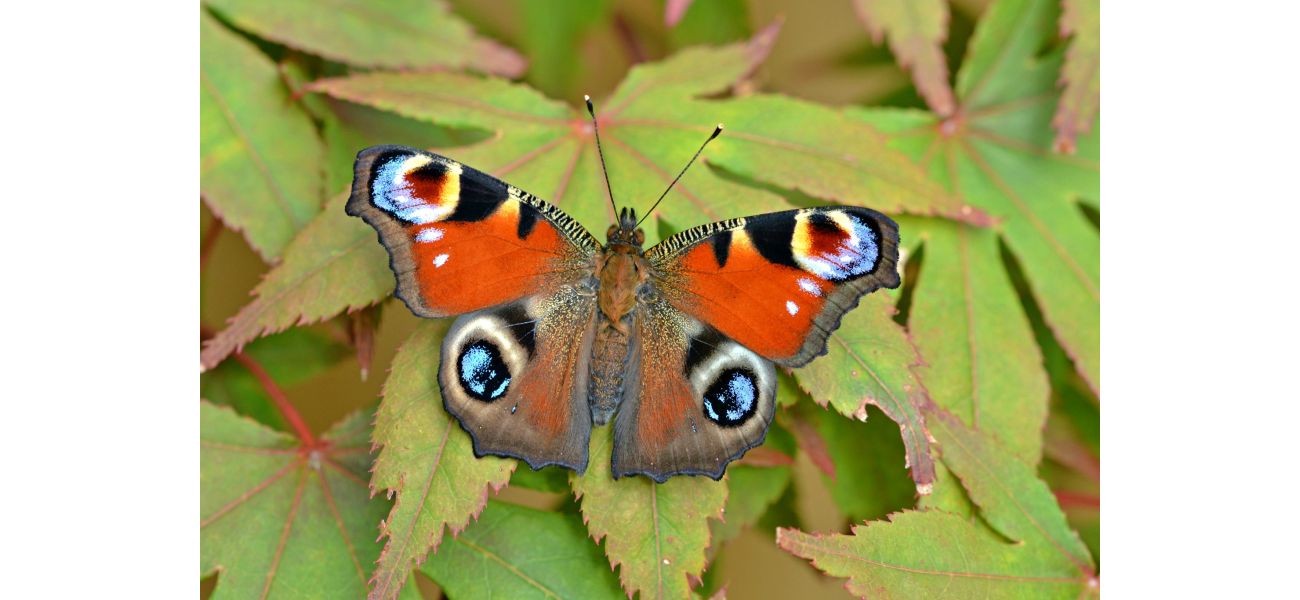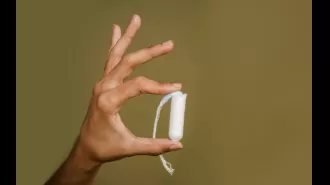Butterflies had a tough year due to rainy spring and cool summer, making it the worst on record.
Experts raise alarm about 'butterfly crisis' as 9,000 observers report no sightings during count.
September 18th 2024.

Have you ever stopped to think about the impact of your gardening habits on the delicate ecosystem around us? It turns out that our obsession with tidiness and perfection in the garden may actually be doing more harm than good. In fact, the year 2024 has been recorded as the worst on record for butterfly numbers in a citizen survey.
For the past 14 years, an annual survey has been conducted to track the butterfly population. This year, the results were shocking, with participants reporting an average of only seven butterflies per count. This is a significant decrease from last year's average of 12. Conservationists are now warning of a "butterfly emergency" after 9,000 participants reported seeing no butterflies at all during their counting session.
The survey, known as the Big Butterfly Count, is organised by the wildlife charity Butterfly Conservation and takes place over three weeks in the summer. It encourages members of the public to spend 15 minutes recording the butterflies they see in their gardens, parks, or countryside. Unfortunately, this summer was the worst in the count's history, with many common butterfly species showing significant declines.
In fact, four-fifths of the butterfly species recorded showed declines compared to the numbers seen in 2023. This decline is not solely due to natural variations in insect populations affected by the weather, but also the result of long-term habitat loss and degradation. Dr Richard Fox, head of science at Butterfly Conservation, explains that habitat loss in the 1970s and 1980s, as well as ongoing pesticide pollution and extreme weather, have all contributed to the decline of butterflies.
Butterfly Conservation is now calling on the government to take action by declaring a "nature emergency" and banning neonicotinoid pesticides with no exceptions. These pesticides, known for their harmful effects on bees, have also been proven to have a negative impact on butterflies. Dr Fox explains that when used on farmland, these chemicals make their way into wild plants, resulting in adult butterflies and caterpillars consuming contaminated nectar and plants.
However, simply banning these pesticides will not be enough to reverse the declines in butterfly populations. It is essential that we address the long-term drivers of their decline, or we may face extinction events never seen before in our lifetime. Dr Fox urges for immediate action to protect these key indicator species that signal the health of our environment.
In total, just over 935,000 butterflies and day-flying moths were recorded across the UK during the survey period, a decrease of more than a third from last year. Dr Fox stresses that these results are in line with other evidence that shows this summer has been particularly challenging for butterflies. He reminds us that when butterflies are struggling, it is a sign that our environment is also in trouble.
Nature is sending us an alarm call, and it is up to us to act now to protect these beautiful creatures for future generations. So, next time you are in the garden, think of the butterflies and consider making small changes, like ditching the artificial grass, to help improve their numbers. Let's work together to create a healthier environment for all.
For the past 14 years, an annual survey has been conducted to track the butterfly population. This year, the results were shocking, with participants reporting an average of only seven butterflies per count. This is a significant decrease from last year's average of 12. Conservationists are now warning of a "butterfly emergency" after 9,000 participants reported seeing no butterflies at all during their counting session.
The survey, known as the Big Butterfly Count, is organised by the wildlife charity Butterfly Conservation and takes place over three weeks in the summer. It encourages members of the public to spend 15 minutes recording the butterflies they see in their gardens, parks, or countryside. Unfortunately, this summer was the worst in the count's history, with many common butterfly species showing significant declines.
In fact, four-fifths of the butterfly species recorded showed declines compared to the numbers seen in 2023. This decline is not solely due to natural variations in insect populations affected by the weather, but also the result of long-term habitat loss and degradation. Dr Richard Fox, head of science at Butterfly Conservation, explains that habitat loss in the 1970s and 1980s, as well as ongoing pesticide pollution and extreme weather, have all contributed to the decline of butterflies.
Butterfly Conservation is now calling on the government to take action by declaring a "nature emergency" and banning neonicotinoid pesticides with no exceptions. These pesticides, known for their harmful effects on bees, have also been proven to have a negative impact on butterflies. Dr Fox explains that when used on farmland, these chemicals make their way into wild plants, resulting in adult butterflies and caterpillars consuming contaminated nectar and plants.
However, simply banning these pesticides will not be enough to reverse the declines in butterfly populations. It is essential that we address the long-term drivers of their decline, or we may face extinction events never seen before in our lifetime. Dr Fox urges for immediate action to protect these key indicator species that signal the health of our environment.
In total, just over 935,000 butterflies and day-flying moths were recorded across the UK during the survey period, a decrease of more than a third from last year. Dr Fox stresses that these results are in line with other evidence that shows this summer has been particularly challenging for butterflies. He reminds us that when butterflies are struggling, it is a sign that our environment is also in trouble.
Nature is sending us an alarm call, and it is up to us to act now to protect these beautiful creatures for future generations. So, next time you are in the garden, think of the butterflies and consider making small changes, like ditching the artificial grass, to help improve their numbers. Let's work together to create a healthier environment for all.
[This article has been trending online recently and has been generated with AI. Your feed is customized.]
[Generative AI is experimental.]
0
0
Submit Comment





